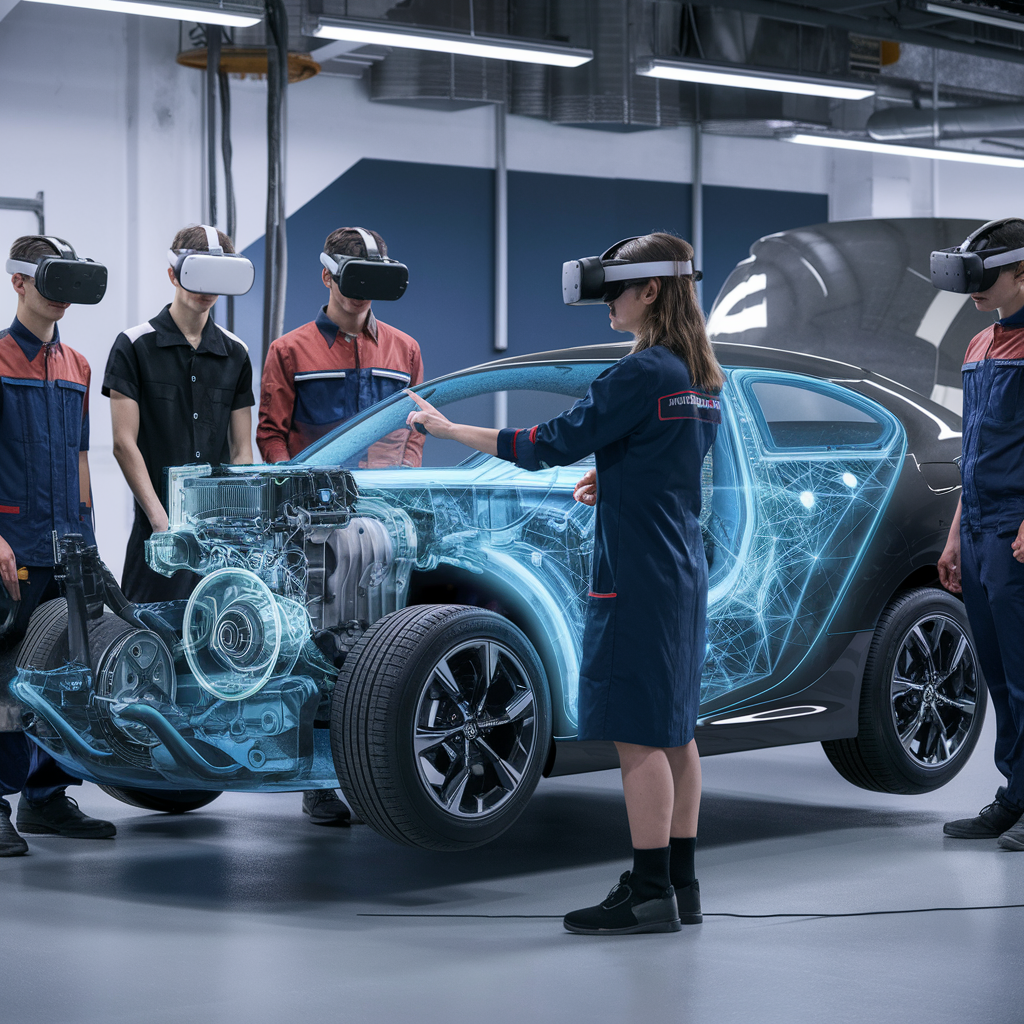In today’s rapidly evolving automotive industry, Virtual Reality (VR) is revolutionizing both prototyping and production processes. From concept design to workforce training, VR provides innovative solutions that streamline operations, reduce costs, and accelerate learning. In this blog, we’ll explore how VR automotive training, is shaping the future of automotive design and production.

VR in Automotive Prototyping
Prototyping is an essential, yet costly, phase in automotive design. Traditional methods often involve building multiple physical models, which can slow down the process. VR eliminates many of these challenges by enabling digital prototypes that can be reviewed and adjusted in real-time, saving time and resources.
1. Faster Design Iterations
VR allows automotive teams to create and modify virtual prototypes instantly. Engineers can test different designs without waiting for physical models, enabling faster decision-making and fewer delays in the production pipeline.
2. Enhanced Collaboration
Through VR, geographically dispersed teams can collaborate on design projects in real-time. This enhances communication, speeds up revisions, and ensures that all stakeholders are aligned throughout the development process.
3. Real-World Testing
VR simulations allow engineers to test vehicle designs in real-world environments before physical production begins. This reduces the risk of design flaws, improves safety, and ensures that the final product meets performance standards.
VR Training for the Automotive Workforce
As the automotive industry becomes more technologically advanced, the need for skilled workers grows. VR automotive training offers immersive learning experiences that help employees quickly adapt to new tools, processes, and machinery.
1. Risk-Free Hands-On Learning
With VR, workers can practice complex tasks in a virtual environment that mimics real-world conditions. This allows for hands-on learning without the risks associated with physical equipment or live production environments.
2. Scalable Training Programs
VR training solutions are easily scalable and customizable. Whether it’s training new hires or upskilling experienced workers, VR offers flexible modules that can be tailored to specific needs, from EV assembly to automated manufacturing systems.
3. Faster Learning
Immersive VR experiences accelerate the learning process. Trainees engage with realistic scenarios, which helps them retain information better and become job-ready in a shorter time frame compared to traditional methods.
The Synergy Between Prototyping and Training
By integrating VR into both prototyping and training processes, automotive companies can create a seamless connection between design and production. Workers trained using VR are better equipped to handle the complexities of modern manufacturing, particularly in areas such as electric vehicle production and automation.
For example, during the transition to electric vehicles, both prototyping and production teams need to collaborate closely to meet safety and performance standards. VR facilitates this collaboration, ensuring smooth transitions between design and production.
Conclusion
VR is transforming automotive prototyping and training, offering solutions that accelerate design iterations, enhance workforce skills, and streamline production processes. Automotive companies adopting VR training solutions are better positioned to meet the demands of an increasingly competitive market.
For customized VR solutions in automotive design and training, contact DevDen, a vr development company in AR/VR/MR and 3D immersive technologies. DevDen provides industry-specific programs to drive innovation and operational excellence.



